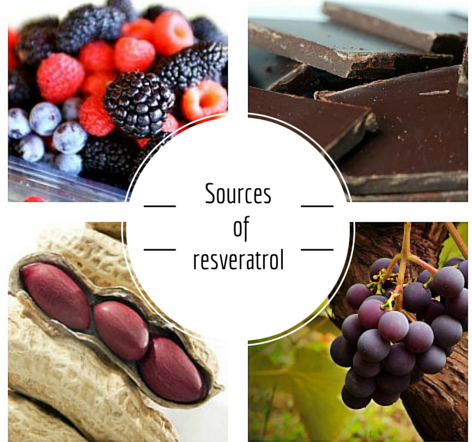When you read that you can lose weight by drinking red wine, that’s a statement that you should interpret cautiously.
The headlines on red wine and weight loss stemmed from a recent animal study investigating the effects of a purified form of the phytochemical resveratrol on preventing obesity and related complications. The authors determined that resveratrol converts a type of fat called white adipose tissue into brown fat, which is a more metabolically active (and energy-burning) type of fat that can lead to weight loss.
So why the leap to red wine in recent headlines? Resveratrol is primarily concentrated in grapes and a limited number of other foods such as peanuts and some berries. And red wine makes a catchy headline.
 But although red wine is a source of resveratrol, it carries side effects with it such as being highly concentrated in calories and alcohol, all of which can promote weight gain and increase risk for disease when consumed in large quantities and over the long-term. Heavy alcohol use is also associated with multiple cancers. AICR recommends that if you do drink, limit to 1 drink or less for women and 2 or less for men per day.
But although red wine is a source of resveratrol, it carries side effects with it such as being highly concentrated in calories and alcohol, all of which can promote weight gain and increase risk for disease when consumed in large quantities and over the long-term. Heavy alcohol use is also associated with multiple cancers. AICR recommends that if you do drink, limit to 1 drink or less for women and 2 or less for men per day.
The study supports numerous experimental studies investigating the beneficial effects of resveratrol in vitro (cell culture) and in vivo (among animals) but provides limited promise for how the results could translate to humans. Answers to questions such as, “How much resveratrol would an individual need to produce the same effect?” and “Would the effect of resveratrol change if it were consumed as part of a whole food?” remain unclear. Much more research is needed before claims can apply to humans.
But decades of scientific research have pointed to the beneficial effects of resveratrol, including its inhibitory role in cancer initiation, promotion, and progression.
The good news is that resveratrol belongs to the larger class of phytochemicals called polyphenols that are ubiquitous in almost every plant-based food consumed in the human diet. Examples include tea, cocoa, extra virgin olive oil, legumes, grains, and berries.
Focusing on foods and non-alcoholic beverages derived from grapes and other polyphenols should be prioritized when composing a healthy diet. Think about consuming all natural, 100% Concord grape juice, which has been associated with multiple health benefits arising from its high concentration of a variety of bioactive compounds (in addition to resveratrol), which result in substantial antioxidant activity. Other foods highly concentrated in resveratrol include peanut butter and red grapes.
AICR recommends a “plant-based diet” which means the majority of foods in the diet will be derived from plants.
By increasing the amount of fruits, vegetables, grain products, beans, nuts, and seeds in your diet you will get plenty of foods that provide a good source of resveratrol as well as dietary fiber, vitamins, minerals, and host of other phytochemicals that work in synergy to prevent disease as well as help you to reach and maintain and healthy weight.
Christine L. Sardo Molmenti, PhD, MPH, RD, is AICR’s Science Analyst. Chris is a a cancer epidemiologist at Columbia University’s Mailman School of Public Health and specializes in making the science of cancer prevention understandable, and doable. You can connect with her on twitter @christinesardo.






Hey Thanks for sharing,
Good article to read.